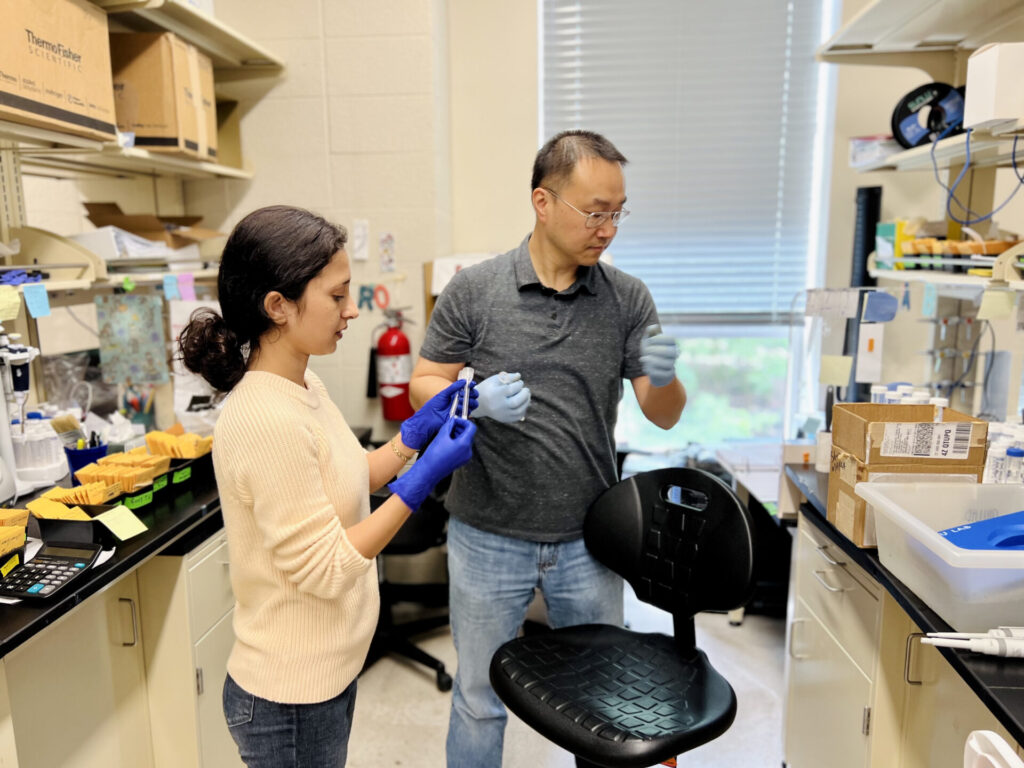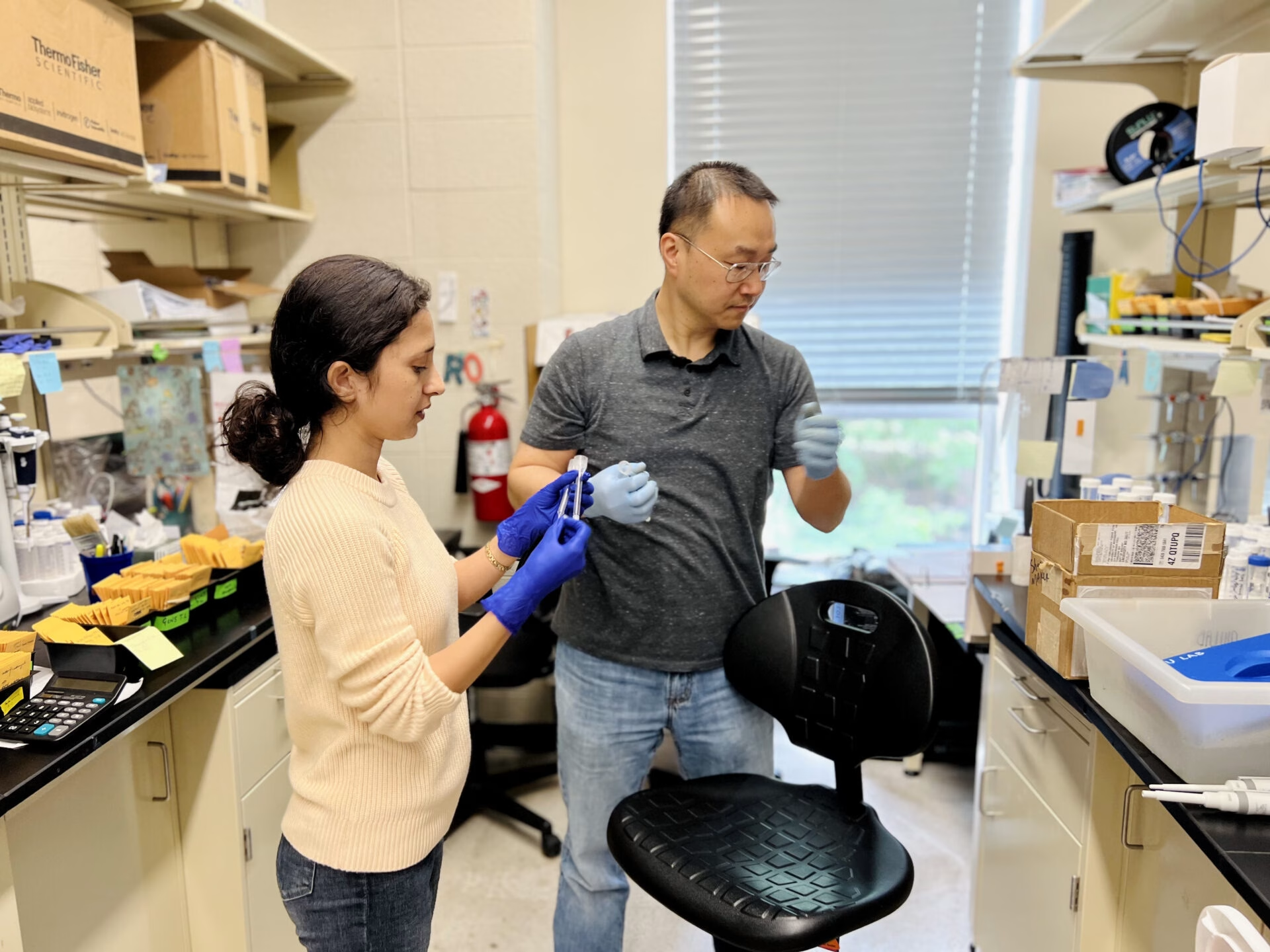By Debbie Nelson
University of Mississippi

The National Science Foundation has awarded University of Mississippi biologist Yongjian Qiu a $1 million grant to further his research into the effects of global warming on crops.
Designed to help new teacher-scholars establish their research programs, the NSF CAREER grant will help Qiu conduct more in-depth analysis of the processes that alert plants when to absorb sunlight: phytochrome-interacting factors and HEMERA protein signaling.
“This project is highly relevant to plant growth, development and crop yield under the changing climate,” said Sixue Chen, UM professor and chair of biology.
Qiu’s lab, which focuses on biological solutions to agricultural challenges, is working to solve a problem caused by increasing temperatures due to global warming: a plant stem grows too fast, damaging the plant’s biomass and leading to severe crop reductions. Their goal is to develop climate-smart crops.
To conduct the study, they are evaluating plant growth in controlled warm, nonstressful environments, a process known as thermomorphogenesis.
“We try to see how plants can cope with this warmer climate,” Qiu said.
While many scientists focus on how plants respond to high-temperature heat stress, Qiu’s team is instead studying the effects of using slightly warmer than normal temperatures, which can have a dramatic effect how fast a plant grows, when it flowers and the density of the stomata.
Qiu had previously discovered that plants cannot grow their stem in warm temperatures without the presence of the HEMERA protein. To advance his research, Qiu needed to isolate parts of the plant to determine their individual reactions to rising temperatures.
Using an Early-concept Grant for Exploratory Research, Qiu worked with Yiwei Han, UM assistant professor of mechanical engineering, to develop micro-heaters, only 1 millimeter-by-1 millimeter in size. Produced using a 3D printer, the micro-heaters are used to elevate the temperatures of certain plant areas, such as leaves, to isolate how plants adjust to varying environmental conditions.
Their results, detailed in a TEDxUniversityofMississippi talk earlier this year, offer some promising possibilities.
“When a leaf is exposed to extreme heat, a heat-shock protein is highly induced, not only in that leaf but also in distal leaves and the stem,” Qiu said. “There is some signal – communications – between the organs stem, leaf, roots.
“We want to see if some sort of signaling molecules can be delivered.”
To develop results on a cellular level, the two researchers are collaborating again to develop even tinier wireless micro-devices that can be placed onto organs and into the cells of plants.
“We want to make an easier, more consistent way to generate heat,” Qiu said. “Also, we want to see whether we can place the heater into the cell, micrometer size. This is very challenging.
“Inside the cell, there is fluid, the cytoplasm, so the heater may move, even rotate. We plan to address this challenge, and once we do, it will be a significant advancement.
The goal is to discover exactly how PIF4/HMR-mediated thermomorphogenesis happens in plants.
Qiu and his Ole Miss team are using a plant called Arabidopsis thaliana, a type of cress in the mustard family.
“It is the best study model plant because it has a smaller genome, and it can produce seeds in large amounts and within a relatively short period,” he said. “Its lifespan is usually two to three months, and again makes tens of thousands of seeds in one single plant.
“The genome is very small – only five chromosomes. It is difficult but readily transferable results that transfer to crop studies like vegetables because they share a lot of conserved genes.”
This material is based upon work supported by the National Science Foundation under Grant Nos. 2239963 and 2200200.

